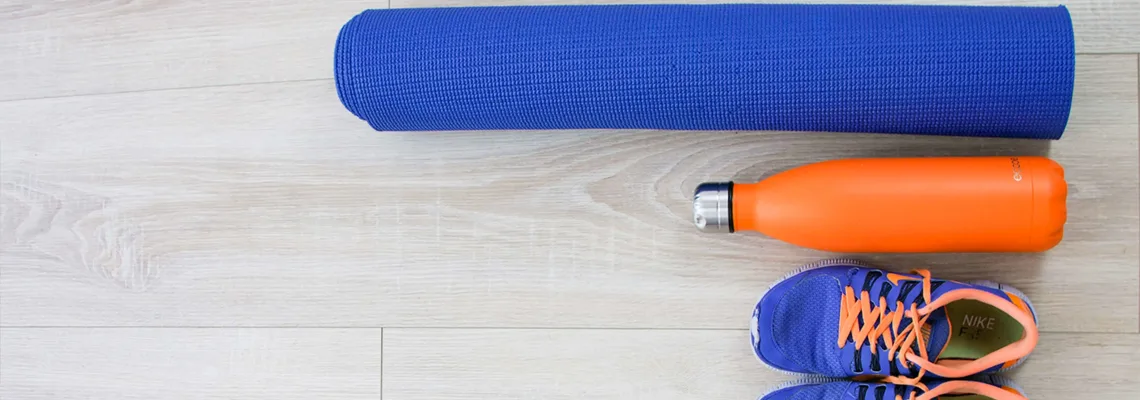Imagine that you’re one month into recovering from surgery that repaired your torn ACL – but you’re a bridesmaid in a destination wedding in Tuscany. You could bail. You could stay home on the couch while your friends and family gulp down Chianti by the jug-full. Or, you can avoid a major case of FOMO and prepare, plan, and make accommodations to travel with an injury while continuing your rehabilitation regimen.
Talk to Your Doctor and Physical Therapist
This goes without saying but is worth repeating. Before you embark on a cross-country road trip, an overseas flight, or a cruise to a tropical island, touch base with these crucial healthcare resources and get some guidance to fit your specific condition. It’s not worth re-aggravating a major injury just to snap a selfie at the rim of the Grand Canyon.
Here are some questions to consider asking your physical therapist before you travel:
What are my movement restrictions?
- This is crucial if you have a lower-body injury and you plan to do a lot of walking or if you can’t avoid using the stairs. Your PT may restrict the amount of weight you can carry, or limit your total step count, or even how much time you should spend off your feet.
What if I need emergency support?
- Depending on the office hours and availability of your physical therapist, you may be able to keep your PT on speed dial. If you are traveling with an injury and you begin to feel discomfort or pain, or you accidentally twist something the wrong way, you will feel better knowing they are available to talk or email to help you through and give advice. Of course, use local emergency resources as needed.
Should I travel with medication?
- Although your physical therapist can’t prescribe medication, they may have advice about how to broach the subject with your physician. If you are flying internationally, the CDC has advice about what to do with your medication. If you’re flying domestically, the TSA allows pills and other forms of non-liquid medication as long as they are screened. Liquid medication is allowed as long as it follows the basic rules for all liquids.
Acing the Airport Security Screen
Anyone who’s been through security at the airport knows it’s an exercise in preparation. You’ll shuffle along for an hour until you’re suddenly thrust into a frenzy – grabbing plastic bins and dumping your pockets in front of scores of strangers. Make it easy on yourself and plan ahead. Download this card in PDF form and present it to TSA agents to alert them of your medical condition. By all accounts, the millimeter-wave machine that has replaced the x-ray in airports across the globe is safe and shouldn’t affect your implants or medical devices, but you should still alert the agents ahead of time that their scanners might reveal an anomaly.
Also, take your injury into account when planning your wardrobe for your flight or your cruise. If you’re having shoulder issues, don’t carry a duffel bag and instead get yourself wheeled luggage. If you have hip or knee issues, don’t wear boots through security. Get a basic pair of slides or slip-on shoes that you can pull off without a lot of effort. And remember to keep your medications in your carry-on. Your PT specialist can help prepare you for
Pack The Right Tools
Most physical therapists teach exercises that require minimal tools – if you don’t count treadmills, of course. That means it should be easy to replicate your exercises and movements without carrying a full gym in your checked luggage. Ask your PT for the brands they recommend. Think about scooping up an extra set of resistance bands, a small foam roller, or a basic yoga mat that you can leave behind if you don’t want to bring them back home.

Consider Your Accommodations
Chances are you’re already staying in a brand-name hotel or taking a cruise that offers a small fitness room or even a pool. If this is the case, make sure to take advantage of these features. If your recovery calls for straight-ahead jogging, get up early and get some time on the treadmill. If your physical therapist recommends that you use the pool for aquatic resistance exercises, make the effort to get there before the kids do.
If you’re taking the scenic route and staying in a motel, a hostel, or Airbnb, you’ll have to make a decision. Depending on your destination, you may be able to make arrangements with a local gym or physical therapist to use their facilities to maintain your rehab routine. Be prepared to change your accommodations, though, for something that offers more amenities. This is particularly important if you are older and need the piece of mind along with a safe, clean space to continue your rehab.
Just because you’ve had surgery or sustained a major injury doesn’t mean you have to stop living your life. But you do need to be smart about how you travel by planning ahead and consulting your doctor and your physical therapist before you go.



